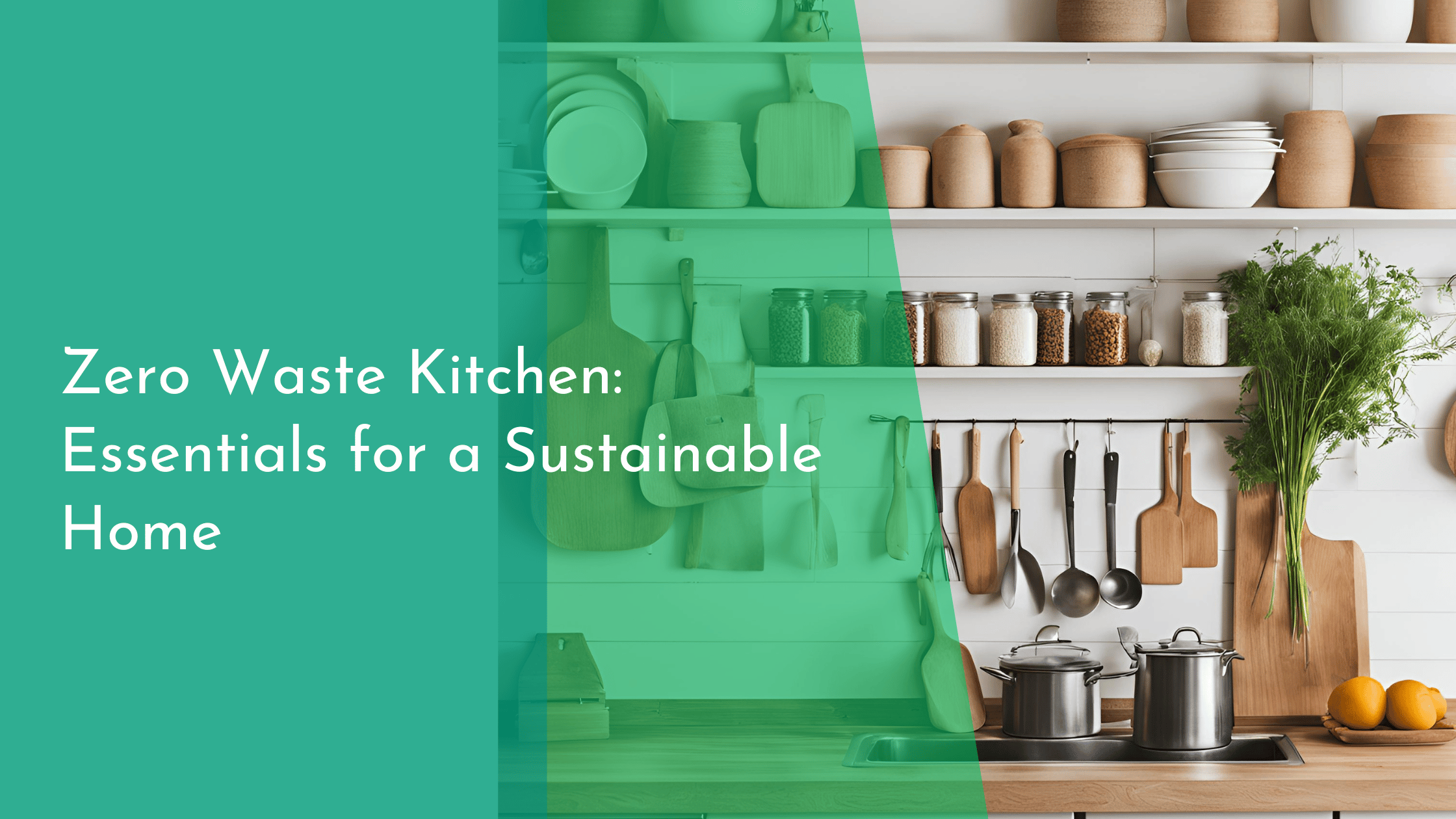Zero Waste Kitchen: Essentials for a Sustainable Home
In an era where sustainability is more important than ever, transforming our homes into eco-friendly sanctuaries can have a significant impact on the environment. One of the most effective places to start is in the kitchen, a space that traditionally generates a considerable amount of waste. The concept of a zero waste kitchen focuses on minimizing waste and making more environmentally conscious decisions. Through simple changes and mindful practices, you can significantly reduce your kitchen’s ecological footprint and contribute to a healthier planet.
Transform Your Kitchen into a Zero Waste Haven
Transitioning your kitchen into a zero waste haven is an empowering journey that starts with reevaluating your consumption habits. Begin by decluttering your kitchen and only keeping items that serve a purpose. Donate or recycle any excess utensils or gadgets that are collecting dust. This not only creates a more organized space but also encourages you to think critically about the necessity of future purchases. By prioritizing quality over quantity, you’ll find that you can do more with less, which is a fundamental principle of zero waste living.
Another crucial step is to shift your focus towards purchasing items with minimal or no packaging. Supporting local farmers’ markets or stores that allow you to bring your own containers can significantly cut down on plastic waste. When grocery shopping, opt for bulk bins and fresh produce that doesn’t come wrapped in plastic. Additionally, be mindful of how you store food at home; using reusable containers, beeswax wraps, or cloth bags can help maintain freshness without the need for disposable materials.
Composting is an essential practice for any zero waste kitchen. It allows you to turn food scraps into nutrient-rich soil, which can be used to enrich your garden or indoor plants. By composting, you not only reduce the amount of waste sent to landfills but also return valuable nutrients to the earth. Whether you have a backyard compost bin or a small indoor setup, incorporating composting into your routine is a sustainable choice that benefits both your kitchen and the environment.
Essential Tools for a Sustainable Culinary Space
Equipping your kitchen with the right tools is vital for sustaining a zero waste environment. Start with investing in quality, durable kitchenware that will last for years, such as stainless steel pots and pans, wooden cutting boards, and glass storage containers. These items are not only more sustainable but also safer for your health compared to plastic alternatives. Look for products with minimal packaging or those made from recycled materials to further reduce your environmental impact.
Reusable items are the cornerstone of a zero waste kitchen. Replace single-use items like paper towels and plastic wrap with more sustainable alternatives. Consider using cloth napkins, silicone baking mats, and mesh produce bags. These items are easy to clean, reusable, and significantly reduce waste. By making the switch, you not only save money in the long run but also contribute to reducing the demand for disposable products that clutter landfills.
Finally, consider incorporating energy-efficient appliances and tools into your kitchen. Modern energy-efficient appliances, such as induction cooktops and convection ovens, use less energy and reduce your carbon footprint. Additionally, implementing manual tools, like a French press for coffee or a hand-cranked egg beater, can further decrease your reliance on electricity. By being mindful of the resources you consume, you set a positive example and inspire others to adopt sustainable practices in their homes.
Final Thoughts
Embarking on the journey to create a zero waste kitchen is a rewarding challenge that encourages mindful living and environmental stewardship. By making intentional choices and embracing sustainable practices, you can transform your kitchen into a model of eco-friendly efficiency. While the initial shift may require some adjustments, the long-term benefits for both your household and the planet are invaluable. Remember, every small change contributes to a larger movement towards a sustainable future, and your commitment inspires others to follow suit. Together, we can innovate a collective lifestyle change that respects and preserves the Earth’s precious resources.

